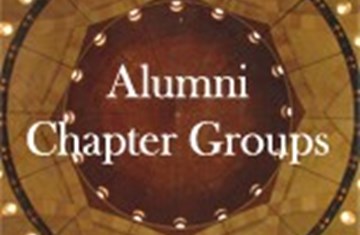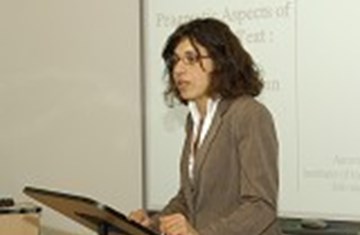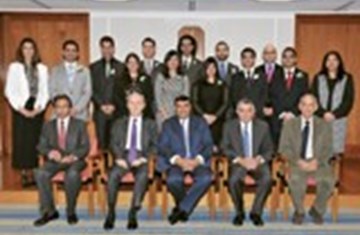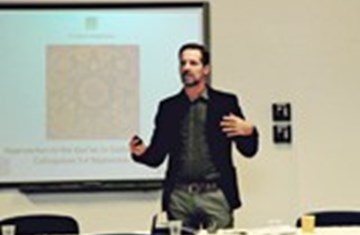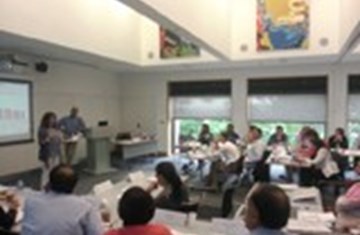Professor Carmela Baffioni joins IIS as Senior Research Fellow

Professor Baffioni is a member of the Accademia dei Lincei, the Academia Europaea, the Accademia Ambrosiana, and the Academie Internationale d’Histoire des Sciences. Her work at the Institute will focus on the Epistles of the Brethren of Purity publication series for which she contributed a volume in 2010 entitled, On Logic: An Arabic Critical Edition and English Translation of Epistles 10-14. She is currently working on the new edition and English translation of Epistles 15-21, entitled Epistles of the Brethren of Purity: On the Sciences of Nature which is due to be published by the IIS in late 2013.
In addition to the Epistles series, Professor Baffioni will also continue her research into the complementary treatise, the Risalat al-Jami‘a (“The Comprehensive Treatise”). Two versions of this work (whose companion is the Risala Jami‘at al-Jami‘a, “The Condensation of the Comprehensive Treatise”, ed. by A. Tamir) are available. One, edited by M. Ghalib, is attributed to the second “veiled” (mastur) imam, Ahmad (Ahmad b, Muhammad b Isma’il b. Ja’far al-Sadiq). The other, edited by G. Saliba, is attributed to the Spanish scientist and scholar Maslama al-Majriti. Although some scholars hypothesise that the Ikhwanian encyclopaedia (or, at least, a primitive nucleus of it) was compiled at a very early date, these two treatises are sometimes reported to belong to a later period.
“The first purpose of my research is an evaluation of the – sometimes relevant – discrepancies that can be found comparing the two versions of the Jami‘a as Ghalib and Saliba do not always account for such discrepancies in their editions”, says Professor Baffioni.
The epistles of the Ikhwan al-Safa’ have been Professor Baffioni’s main field of research since 1987. She has addressed in particular the Ikhwan’s elaboration of the Greek heritage, and various aspects related to Islam, such as their interpretation of Qu’ranic verses, their critical attitude towards several Muslim persuasions and their relations with Christianity and mysticism, their idea of the “vision of God”, of resurrection, and of religious practice, and their angelology (as it is mainly elaborated in Epistle 20 ‘On the Quiddity of Nature’).
Professor Baffioni has also enquired into the possible relations of the Ikhwan with Ismailis, with special regard to their ontological and political doctrines. On this subject she said:
“In their ontology, the Ikhwan appear to share some basic concepts with Ismailis, in particular, ibda’. As to politics, many texts in their encyclopaedia seem to prove their Ismaili commitment.”
Professor Baffioni has also compared the Ikhwan’s doctrines with the mineralogy and botanics of Hamid al-Din al-Kirmani: al-Kirmani takes many technical details from the Ikhwan, even though he departs from the encyclopaedia in the spiritual development of scientific theories. Professor Baffioni has also ascertained that al-Kirmani has some points in common with al-Farabi’s representation of God in his work al-Madina al-fadila. Finally, she has discovered a literal Persian translation of Epistle 41 ‘On Definitions and Descriptions’ in the Jami‘at al-hikmatayn by Nasir-i Khusraw (what anticipates by at least one century the spreading of the Rasa’il in Ismaili milieux).
Professor Baffioni has made significant contributions to modern scholarship on medieval Islamic philosophy and science. Educated at the University of Rome “La Sapienza”, and a student of Francesco Gabrieli and Alessandro Bausani, she became full professor of History of Islamic Philosophy at the Università degli Studi di Napoli “L’Orientale” in 1987. Her publications cover a range of topics such as the Ikhwan al al-Safa’, the history of Muslim philosophy and Islamic science.
Related Pages on the IIS Website:

